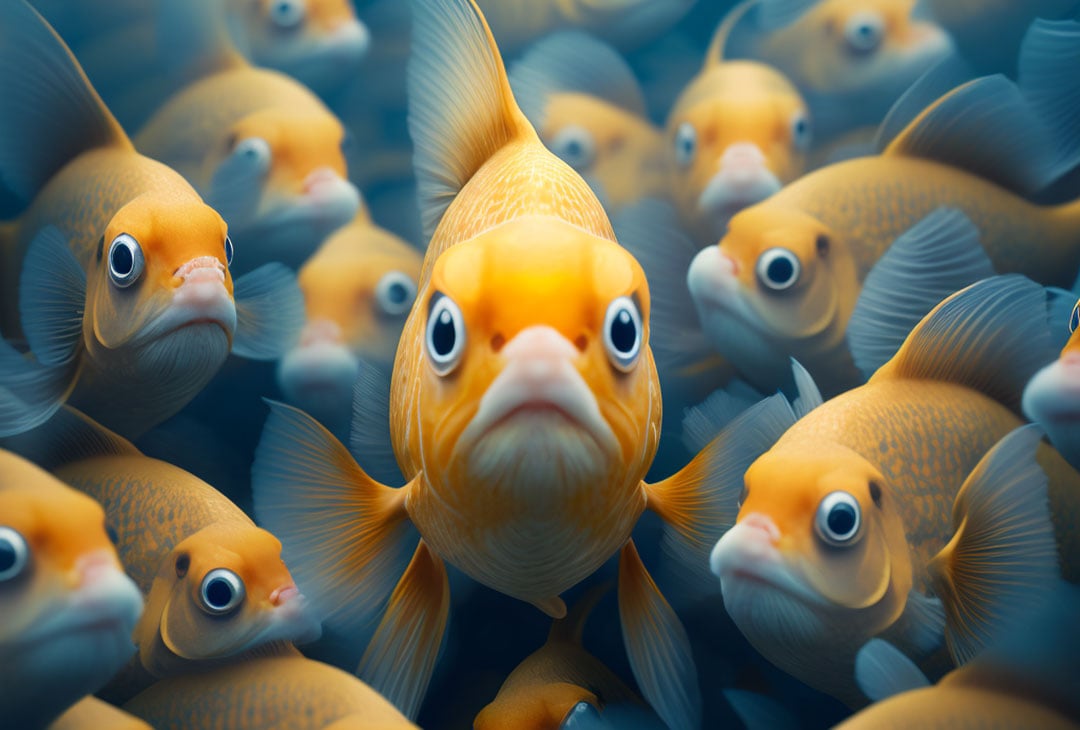Would you prefer a hands-off, leave them to their own devices kind of approach, a keep at arms reach gently advise, or something else altogether?
I seriously doubt it would be possible with humans still in the picture due to our impact on the biosphere and resource use.
No matter what high minded principles we might espouse, human history shows that we fuck up less tech advanced cultures, even when we think we are trying to help.
Case in point North Sentinel Island.
TLDR: Hunter gatherer society that the world has decided to leave alone as they do not want contact but some fuckhead US christian decided he knew better, attempted contact to tell them about God or whatever and got himself killed. While possibly infecting them with something they have no immunity for.
Suppose it was somehow possible though, beyond simply not intentionally/unintentionally fucking them up, what would you like to see?
Leave them the fuck alone.
Humans would probably kill them or enslave them for profit. 😩
Yeah no way would we sit back and let other intelligent species go unmolested. We are the bad guys in all the alien invasion movies.
A former letter:
To whom it may concern,
We, the human species, have taken notice of your civilization. We here by request that you relocate it to the New York sewer system to fulfill our Futurama prophecy.
Thank you,
We are not in a position to “advise” anyone. We can’t even look after our own kind with fairness and peace for all.
I’m not sure another civizilation is possible on Earth within our lifetime. Look what we’re doing to the planet. Even if some species did evolve to become highly intelligent like our ancestors, humans would put them in a lab somewhere to study long before a civilization has a chance to develop.
I definitely understand this sentiment being expressed across the comments here, however the aim of the question is to try to encourage one to imagine a little more, try to go at the idea with a little more idealism.
That’s why I framed it as, how would you like, rather than how do you think a new civilization would be approached. A slight difference, and although both require thought, the latter grounds the question more than the former, at least to my mind.
deleted by creator
What of the civilization was established by rats in a Walmart distribution center?
Skaven?
Discouragement. It was a bad idea to climb down from the trees to begin with.
“We love you enough to tell you not to follow us”
It depends. Are they delicious?
Lol, for real though, if deliciousness determined the fate of species, we’d live in a wild world. Imagine sophisticated tuna cities getting raided for sushi. Thank goodness we don’t snack on concrete, or we’d all be living in tents. We’re basically the galaxy’s weirdos who eat anything that doesn’t eat us first. 😆
It seems like human civilizations are having trouble coexisting, so I don’t see how we could, with an other species, unless it was profitable for us in one way or another.(sadly)
Okay, so, let’s say it’s the descendants of the rats from Mrs Frisby and the Rats of NIMH.
(Warning, this is probably fanfic. It is not intended as commentary on any particular human political situation, including colonialism, capitalism, communism, North Korea, Israel/Palestine, Native Americans, slavery, civil rights, libertarianism, or Trump. Really, I promise.)
They start out as parasites on our civilization; but they desire independence. Their philosophers believe (unbeknownst to us) that “to live without stealing” would be a desirable accomplishment for their people. They have ideas of both community and property; they have individuality and compassion. They argue with one another over their relationship to humans.
If we knew what was going on with them, we might have the chance to do something ethically competent towards them. But if a situation like this arises, we might not even notice it before exterminating it. Humanity has so much power over our world today that we might not even notice.
One initial problem is that we’ve been in the habit of fighting rats for millennia. They eat and shit in our food; they dig holes in our walls; we set cats and dogs and traps and poison on them. That’s how it’s been for a long time.
Another problem is that they know our language, but we don’t know theirs. Their ancestors were taught human language as a scientific experiment; after they escaped, they taught their children to read our language, so they could use our gadgets and protect themselves from our traps – and learn math and science and philosophy from our books.
But the human scientists never learned how to speak Rat. When the uplifted rats escaped, from the scientists’ point of view, the experiment was a serious failure – even contaminating wild rat populations with the modified and trained NIMH rats. The research team tried to contain the failure, then disbanded and went different ways; the idea “there are now rats in the wild capable of human-level civilization” didn’t even make the scientific journals, much less the media or policy circles.
In order to come up with an ethically competent response to this situation, we have to first recognize that it’s even happening. The rats dragging our electrical lights and books into their nest are doing so not just for nesting but because they want to read; the descendants of city rats are building complex colonies in our national parks because they want to become less dependent on humans.
But who notices new rat behavior first? People with rat-infested houses. Organic farmers who don’t use rat poison, whose cats are suddenly getting killed in farm equipment way more often than they used to. Exterminators. Health inspectors.
We’re more likely to notice the rats that don’t follow Nicodemus (who argued that rats must become independent of humans) than the ones who do. We’d first notice the clever and malicious ones; the ones who mutilate cats, evade traps, invade kitchens, and piss on our books and computers as if they were saying “we really fucking hate you.”
Or you’re a park ranger. The folks in town tell you the rats are being weird. Some wire and tools and books go missing … and months later some tripping campers come off the trail and tell you they saw a rat city in the deep woods.
After the fourth set of tripping campers talking about how the crazy city rats went and built their own city in the middle of a national park, you go up there to see it.
What do you think?
How do you define ‘civilization’? Do you count ants?
I feel like avoiding them or waiting might end up with a situation where some group of humans causes irreversible harm because they think they know better.
Once enough deliberation has been done and we’re ready to act in good faith, we should probably make contact and set a good precedent quickly. Maybe then we can guide future interactions in a more positive way?
I think something to consider is the sheer timescale that evolving civilization implies, evolution takes a very long time, and as far as we know nothing else on earth quite is as smart as humans. That means that another species on earth developing civilization implies one of three things:
That we will have been interacting in some form with their ancestors as they evolve intelligence for a very long time, and so their civilization will have evolved with and probably around ours, rather than completely separately, meaning that they probably won’t be a separate civilization so much as we’d have a shared one, or at least a loosely connected one. (Like if over the next several thousand years, some octopus was to slowly get smarter and eventually evolve to civilization, they’d do so in an ocean littered with human artifacts and shaped by human activity, and they might even need some of this stuff in some way, like maybe they develop metalworking by shaping bits of metal in shipwrecks and garbage rather than extracting it from rocks for example.)
That they already were intelligent in a way similar to humans, with language and other such things needed to develop civilization, without us knowing, but simply had not invented it yet (like humans were until around 10000 years or so ago, most of our history as a species). In this case, I don’t think just leaving them to their own devices without contact is a great idea, because they’ll probably have an extremely bad view of humans (we don’t tend to treat wild animals all that well, and especially the more intelligent ones, which we have often hunted for food or to remove competition, and they’re probably going to have a whole lot of stories and oral history about us as a result.) Since they haven’t been able to really do much in retaliation (to the point we didn’t even recognize them trying), they’ll probably think of us less as just rivals and more like unstoppable monsters to be avoided at all costs. This kind of view is basically setting us up for conflict with them later on, and will take a lot of work to address given how ingrained it probably is with their culture, so both communication and helping them out with early civilization problems that we’ve already solved is probably a good idea for peaceful relations later.
Finally, the third possibly is that they are able to suddenly become intelligent and develop civilization because we made them that way, ie, they’re either AIs of some sort, or an intelligent species we engineered, or an existing species like dolphins or such who’s intelligence we have artificially enhanced (in science fiction this is often called uplifting). In this case, their civilization is intrinsically linked with ours from the start, and if they happen to need some of our technology to exist (ie, like machines need manufacturing equipment to make more of themselves, or maybe an artificially enhanced creature needs some kind of drug to get the intelligence enhancing effect or something) then making their own civilization without help from ours in at least giving them that tech isn’t even possible. It’s possible they might still want to go out and found their own government or something, but such a thing is less like a wholely separate civilization and more like just a new country, at least at first, and so probably should be treated as such.
Whilst I don’t think it’s possible due to human activity, I’d love to see humanity help them, but I don’t think we would









